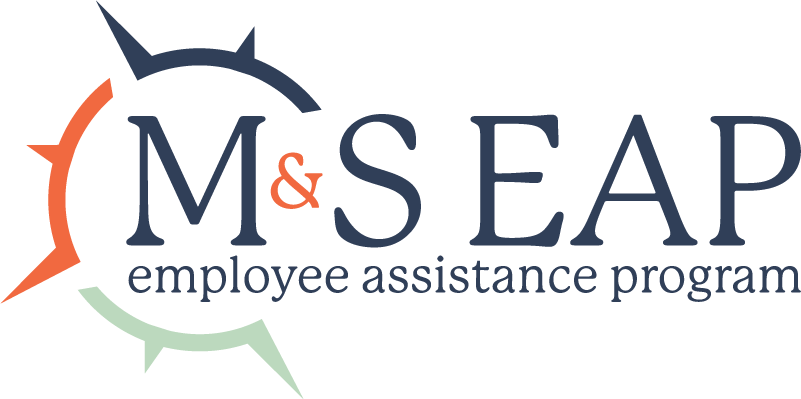The Changes We Can Expect in Ourselves and Our Staff: From the (Virtual) Desk of Chuck Mazzitti

By now, the reality of what this pandemic is doing to our lives is starting to settle in. More than 30 million of us have lost our jobs. Financial, shelter and food security have vanished for many. All of us are dealing with a potentially devastating illness that we cannot see, manage or cure. Just like a business, we all function best when we have a sense of certainty and security about our current situation and the future. When those things are replaced with uncertainty and a lost sense of control, some fundamental changes occur.
To understand what happens to us, it can be helpful to look at Maslow’s Hierarchy of Needs. Maslow observed that people operate from five levels of need. Advancing from one level to the next depends upon meeting the needs of the previous level. The Maslow hierarchy levels are:
- Physiological Needs – air, water, food, shelter, sleep, clothes and reproduction
- Safety Needs – Personal security, employment, resources, health and property
- Love and Belonging – friendship, intimacy, family, connectedness
- Esteem – respect, self-esteem, status, recognition, strength and freedom
- Self-Actualization – the desire to be the best one can be. All of us can be at different levels depending on our past and current life experiences.
When we suffer a trauma that explodes our worldview of stability, safety, and certainty, we will unconsciously retreat to a previous level of functioning. How many levels we drop depends on the specific threat to our existence. You can easily see where the current pandemic threats are, and then the levels to which we will retreat as we refocus and then rebuild. It is impossible to focus on respect, status, and self-esteem when you do not have food or shelter. We have seen this play out in our business. When the pandemic fully struck in March, we expected a surge in the number of calls for help with family issues, emotional issues, and coping in general. Instead calls for help dropped by more than 50%. Why? People were grappling with the basics – protecting their health, paying bills, feeding their families. Everyone’s focus has been on immediate needs, not long-term thinking and planning. This focus on immediate needs can help us through the trauma and uncertainty, but only up to a point. Eventually we have a sense of where we are with managing the basics, and the emotional response bubbles to the surface. In the past few weeks, the number of calls we are fielding daily has increased dramatically, and I expect that this trend will continue for months to come, unless some stabilizing event emerges to add certainty to our outlook.
Our reactions to those trauma-induced emotions manifest in many ways. We can retreat into isolation, building a survival mentality, constantly fearful of the future. The list of physiological and emotional symptoms would cover several pages, but here are some of the most common:
Emotional/Behavioral Symptoms: panic attacks; anxiety; depression; excessive drinking and drug use (self-medication); obsession with the news; inability to sleep well; loss of emotional control; eating for comfort, not just nutrition; angry outbursts; inability to concentrate; loss of appetite; increased violence against others or self; feelings of helplessness and hopelessness.
Physical Symptoms: headaches, neck pain, stomach aches, back pain, leg pain, and chest pain.
You can see why people start to think they are either getting COVID-19 or losing their minds. Or both.
The other common response we see is called “projecting.” This occurs when we speculate about what is going to happen, with or without facts. This is the fuel for rumor mills, conspiracy theories and wild speculation. It feeds our fears and provides a common enemy. At work, we have the grapevine; in society, we have social and national media fanning the flames. Projecting can be paralyzing. Because the possible scenarios change with regularity, there is further uncertainty and even less we can do about it. This in itself can build a state of helplessness that feeds many of the other emotional responses.
So what can we do about these reactions? How do we get past them? Here are some ideas:
- Limit your exposure to social and national media. No one needs a 24 hour news feed of negative information, especially if it is unsubstantiated rumor or conspiracy from social media sites. Spend only a limited amount of time each day getting news. Check what you hear or read for validity, making sure it is true. Ask yourself, “Do I feel better spending time absorbing this information, or do I feel worse?” Stop watching train wrecks because they are fascinating.
- Decide what things you can change and those you cannot. There are some things we can manage and control. How we respond to threats and trauma is one of those things. What happens at a state or national level is not. We can control how we interact with others, how we plan for what is next, how we manage our finances, how we protect our families and ourselves. We can make decisions within our current restrictions. What do we want to eat? Can we connect with those we have not seen or talked to in a while? We can gauge our sense of reasonable control by how we respond to challenges. Are you hoarding toilet paper, sanitizer, or meat? This is a fear reaction, not a positive step to manage our situation.
- Do something for someone else. Many people need help right now. When we focus on doing things to help others, we regain some sense of control. We also feel good about ourselves and stop obsessing about our own situation. Get groceries for someone. Read to a child. Help someone who has mobility issues or fewer resources than you do. This also gives us a chance to reestablish human connection, which we all need and suddenly cannot have.
- Be open to the probability that we are in this for a while and that things are going to be different after that. It is a natural human tendency to want things the way they were. Remember, safety and security are part of Maslow’s Hierarchy. We want things to be the same, to be consistent and predictable. However, traumatic change results in the need to adapt, not return to previous comfort. We have to get our minds to accept that change is inevitable but also good. We may have to learn new ways of interacting, or doing things at work. Our fear of change is rooted in the belief that what was is better, and that we cannot, or do not, want to change. However, much of our lives has been marked by change, which resulted in growth. We graduate from school and begin a career, we stop being single and find a partner, we become parents, and so on. Each change brings a new dynamic and the need to adjust. And it almost always makes us grow and have fuller lives. While it can be difficult to see anything positive in our current situation, there will be opportunities to grow and become stronger. We just have to be open to those possibilities.
Finally, it is true that we cannot take care of others unless we first take care of ourselves. Although many of us focus on taking care of others, we have to be physically and emotionally able to give them our best. Ask yourself the following questions each day. If you do not like the answer, take steps to improve areas that concern you.
- Am I getting enough sleep? Am I getting the right kind of sleep? Waking up several times a night is not restful.
- Do I spend too much time on news and social media sites?
- Am I getting enough nutrition? Am I getting the right kind of nutrition? A 40-pound bag of Oreos and some garlic dip is not a balanced diet.
- Do I spend too much time fretting about the present and the future?
- Am I isolating myself from those I love and care about?
- Am I doing things to take care of myself physically? Mentally? Spiritually?
- Am I able to laugh at things that happen throughout the day?
Today’s challenges are greater than what most of us have ever had to navigate. By taking care of ourselves, and then each other, we can get through this and come out the other side stronger and better equipped for the future.



